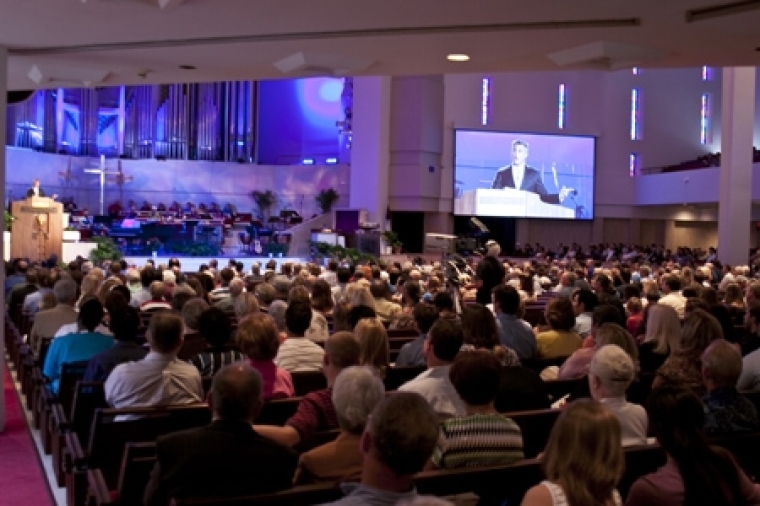
Executive pastors at churches that have a weekend attendance of 2,000 or more persons earn, on average, $99,000 a year and worship pastors get paid $75,000.
Meanwhile, high school pastors earn $54,000 and the church technology director earns $58,000. The salary figures do not include the value of benefits.
Leadership Network has been tracking salary and benefits in large churches since 2001. It has found that the median salary has largely remained the same over the past few years even as attendance at those churches increased.
Eighty-three percent of the surveyed churches said they grew in attendance between 2009 and 2010. Only 10 percent reported no change and 7 percent said they saw a decrease.
This year, 253 churches responded to the Dallas-based network's survey. They were asked for "the combined total of cash salary plus any housing allowance" and were to "include salary amounts funded by love offerings if applicable." If there is more than one person in a position, respondents were to "use the average salary for that role."
Weekend worship attendance at the churches range from 1,000 to 14,999 and respondents represent 38 states and four Canadian provinces.
The typical megachurch in the survey is suburban, has a total budget of over $5 million and has more than 50 full-time staff.
Generally, staffing costs are average between 40 and 50 percent of many churches' budget.
A church with a budget of $1-1.99 million provides, on average, the senior pastor with a salary of $91,000. The average salary for a senior pastor at a church with a $10 million or more budget is $189,000.
The median age for the senior pastor in surveyed churches is 49.
Most of the surveyed churches have some debt, but the amount is equal to or less than the total amount of its annual budget.
All surveyed churches with 2,000 or more in weekend attendance provide medical insurance to full-time staff. Ninety-three percent of churches with an attendance of 1,000-1,999 persons offer medical insurance. Forty percent of megachurches also offer medical coverage for their employees' dependents.
Other benefits provided by a majority of the churches include dental insurance, life insurance, long-term disability insurance, a retirement account and a technology/cell phone allowance.
Four in five churches contribute (typically 3 to 5 percent) to a retirement plan for staff.
The salary survey is not a true random sample and findings are not statistically accurate for all larger churches, nor are they longitudinal, Leadership Network noted. The data, however, indicates many general trends and provides a current picture of compensation practices in very large churches.
On the Web: Download full report